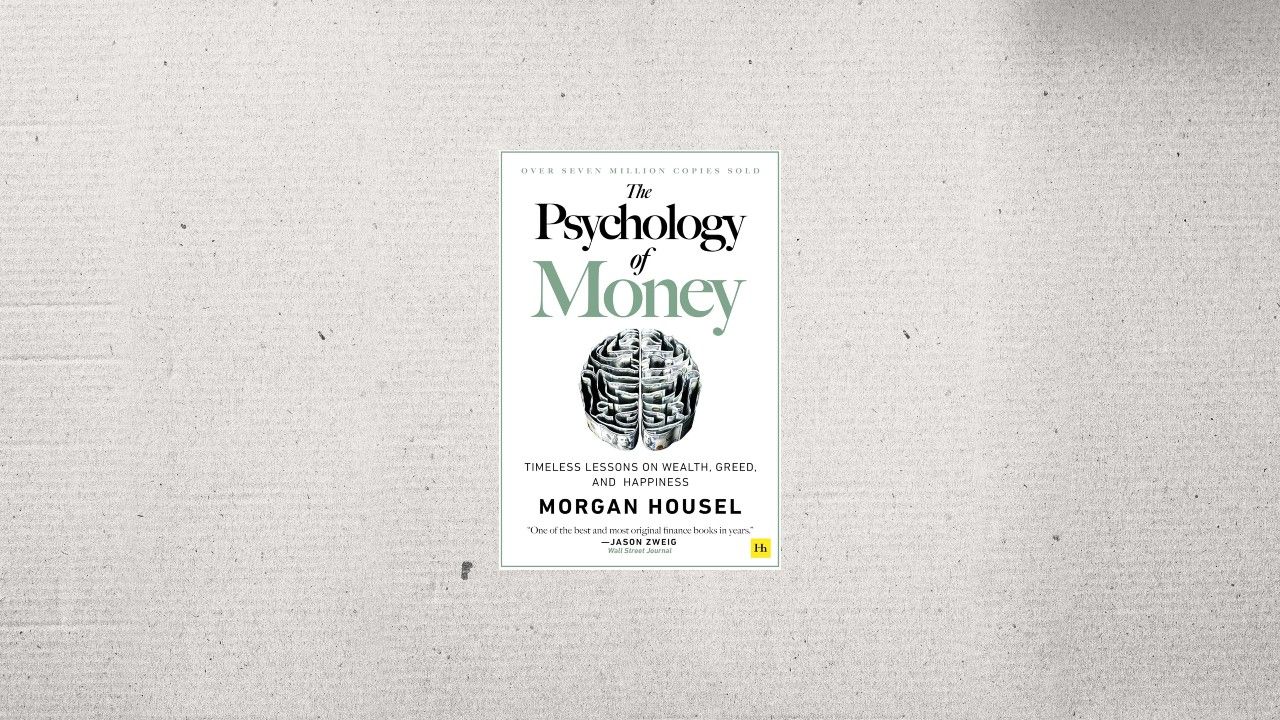The Psychology of Money - Book Summary

Timeless Lessons on Wealth, Greed, and Happiness
by Morgan Housel
"He could be the most popular writer in finance today."
— Barry Ritholtz Bloomberg Radio, Masters in Business
"That rare writer who can translate complex concepts into gripping, easy-to-digest narrative."
— Annie Duke Author, Thinking in Bets
Morgan breaks down how money really works and explains how behavior, emotions, patience, and mindset matter more than raw intelligence. It’s not about being a genius; it’s about staying calm, knowing what’s enough, and playing the long game. He shows that real wealth is freedom, and that saving, humility, and long-term thinking win in the end.
1. Behavior > Intelligence
Smart people can make dumb financial choices if emotions take over.
Financial success isn't about IQ, it's about behavior: patience, discipline, humility.
2. “Enough” Is the Ultimate Wealth
Greed ruins lives (see: Madoff).
-> Happiness = results − expectations.
3. Compounding Is a Superpower
Buffett didn’t just invest well, he invested early and long.
-> Good returns + long runway > amazing returns short-term.
Getting rich requires risk-taking. Staying rich requires paranoia and frugality.
4. Freedom Is the Real Wealth
A tiny % of actions (investments, events) drive most outcomes.
Missing rare but powerful "tail" events can break you.
-> The ability to control your time is the highest dividend money pays.
Most people chase status; the wise chase autonomy.
5. Wealth Is What You Don’t See
Flashy spending = rich. Quiet saving = wealth.
Real wealth is options, not possessions.
6. Save
Savings = flexibility, independence, peace of mind.
The best reason to save? You don’t know what the hell is coming.
The perfect financial plan is useless if it keeps you up at night.
Better to stick with a “pretty good” plan you can follow than a “perfect” one you’ll abandon.
7. Use a Margin of Safety
-> Have room for error. Overestimate risks, underestimate gains.
The only plan that works is the one that survives reality.
8. Know Your Game
People play different financial games. Don’t copy someone playing a different one.
Define your own goals, timeframes, and risk tolerance.
Real optimism = belief things will improve over time, even if the journey sucks.
Disclaimer:
This blog post is for informational purposes only. It is a personal summary and reflection on The Psychology of Money by Morgan Housel and does not constitute financial advice. Always do your own research or consult a licensed financial advisor before making financial decisions.
Note: Some pieces of information are left out of the book.
Get the full experience by reading it! ❤
